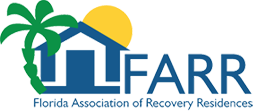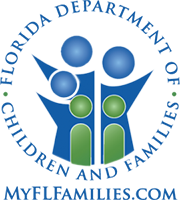
Members of the LGBTQ+ community face many daily challenges that have contributed to a high rate of mental health disorders and addiction within the community. It is important to note that identifying with the LGBTQ+ community is not a mental illness itself, but many members of the community experience higher rates of mental health issues and substance abuse disorders due to the discrimination, shame, and trauma they experience. Mental Health and Addiction in LGBTQ Communities often go together and have created a need for addiction treatment for LGBTQ rooted in dual diagnosis.
Challenges Facing LGBTQ Individuals
The LGBTQ community experiences higher rates of substance abuse than the population. About 9% of the population as a whole experience substance abuse, as compared to the LGBTQ community that sees about 20 to 30% of its population abusing substances. This is due in part to discrimination and biases they experience, often daily, than their heterosexual counterparts would otherwise not.
Some of these challenges include:
- Hate crimes, threats, public humiliation, emotional abuse, or ridicule
- Not receiving promotions or even loss of employment
- Discrimination or stigmatization based on sexual orientation or gender identification
- Rejection and shame from friends or family after coming out
Facing these challenges on a regular basis will often lead to one or more mental health disorders including anxiety, depression, and PTSD. Many will turn to drugs or alcohol to self-medicate and deal with these negative feelings. This can turn into an addiction and other long-term negative mental and physical health consequences.
Trauma and Mental Health in LGBTQ Individuals
There are many mental health disorders that are present in the LGBTQ community, the most common ones include:
- Generalized anxiety disorder
- Major depression
- High-stress levels
- Suicide attempts and self-harm
- PTSD and trauma due to victimization and violence
Some internal conflict comes from members of the LGBTQ community when they are forced to live a “closeted” life. When they hide their sexuality from others in fear of rejection, it often leads to a double life when acting on their sexual orientation. Keeping this secret puts on a big psychological toll on the individual and may lead to the development of mental health disorders.
The Mental Health Substance Abuse Connection
When dealing with mental health issues and harmful attitudes from society, often LGBTQ+ community members will use drugs and alcohol to deal with these negative feelings. Individuals in this community are also more likely to binge smoke, drink, and use drugs than those who identify as heterosexual.
Often, members of the LGBTQ+ community will also hesitate or avoid treatment for mental health and substance abuse disorders for fears of discrimination in the medical setting. Research shows that there is a disparity in medical care for the LGBTQ when compared to those who identify as heterosexual, including in mental health care and addiction treatment. There is a dire need for LGBTQ-friendly rehabs that know the unique struggles members of the community face and provide an inclusive environment to avoid any further discrimination.
Mental Health and Addiction Treatment for LGBTQ People
LGBTQ individuals facing addiction need help that addresses their individual needs. There are various treatment programs that focus on the isolating feelings many members of the community experience and on the lasting effects of being a victim of discrimination or being forced to live a closeted life.
At The Source, we put special emphasis on healing trauma and mental health to adequately treat the root causes of addiction. Our multidisciplinary staff is trained to treat co-occurring mental health disorders alongside substance abuse disorders. We offer an LGBTQ-friendly rehab by welcoming every person who walks through our door as part of our family. A family that has total acceptance and non-judgment no matter what your sexual orientation or gender identity might be.
If you or a loved one is part of the LGBTQ+ community and needs help with addiction, it can be difficult to assure the treatment facility will be a safe place. At The Source, your comfort and safety are our number one priority and one of our addiction specialists will always be available to answer any of your questions. Give us a call today to get started with your recovery journey.
 The Source quite frankly saved my life and got me back on track, never giving giving up on me. When you are thinking about and looking through all of the different places to go for treatment this is the one that should stand out from the rest.
The Source quite frankly saved my life and got me back on track, never giving giving up on me. When you are thinking about and looking through all of the different places to go for treatment this is the one that should stand out from the rest.




























